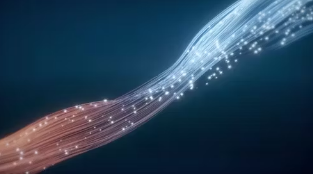Access to high-speed internet is crucial for both personal and professional tasks. Two prominent technologies that have revolutionized internet connectivity are Fiber 1G and 5G networks. Understanding the differences between these two options can help users make informed decisions about their internet needs.
Fiber 1G Internet: Fiber optic internet delivers data via thin, flexible fibers made of glass or plastic. It offers incredibly fast and reliable internet speeds, with 1Gbps (Gigabit per second) speeds being the standard. Here are some key benefits of Fiber 1G internet:
- Lightning-fast speeds: Fiber optics can provide symmetrical download and upload speeds of up to 1Gbps, making it ideal for bandwidth-intensive activities like streaming, online gaming, and video conferencing.
- Reliable connection: Fiber optic cables are less susceptible to interference, ensuring a stable and consistent internet connection.
- Low latency: Fiber 1G internet offers low latency, reducing delays in data transmission and improving overall performance.
5G Internet: 5G technology represents the next generation of wireless connectivity, offering faster speeds and lower latency compared to previous cellular networks. Here’s what sets 5G internet apart:
- Wireless convenience: 5G networks enable wireless connectivity, allowing users to access high-speed internet on mobile devices without the need for physical cables.
- Increased bandwidth: 5G technology can support a significant increase in the number of connected devices and the amount of data transferred simultaneously.
- Lower latency: 5G networks promise reduced latency, enabling real-time communication and seamless experiences for applications like virtual reality and autonomous vehicles.
Choosing Between Fiber 1G and 5G: When deciding between Fiber 1G and 5G internet, several factors come into play. Fiber 1G internet is ideal for users who prioritize consistent and ultra-fast speeds, especially for activities that require heavy data usage. On the other hand, 5G internet offers the flexibility of wireless connectivity and is well-suited for users who value mobility and connectivity on-the-go.
Both Fiber 1G and 5G internet technologies have their own strengths and are transforming the way we connect and communicate. Understanding the differences between these two options can help individuals and businesses choose the internet solution that best meets their unique needs and preferences in today’s increasingly digital world.
